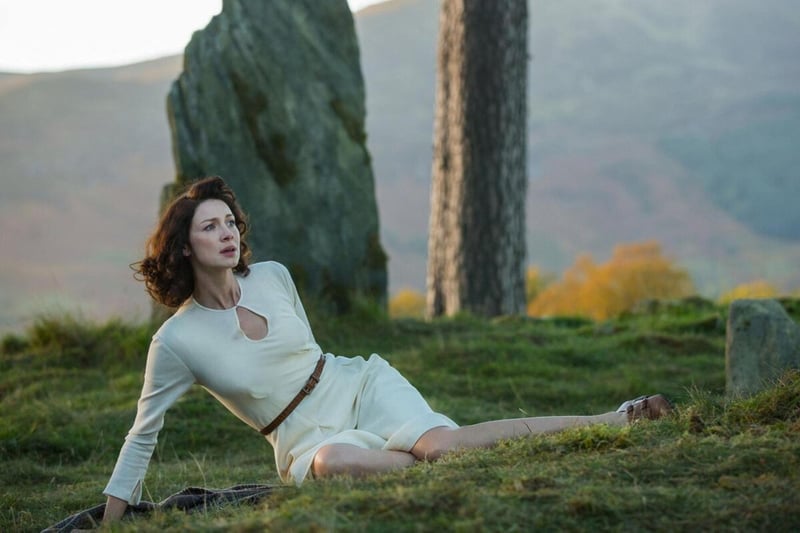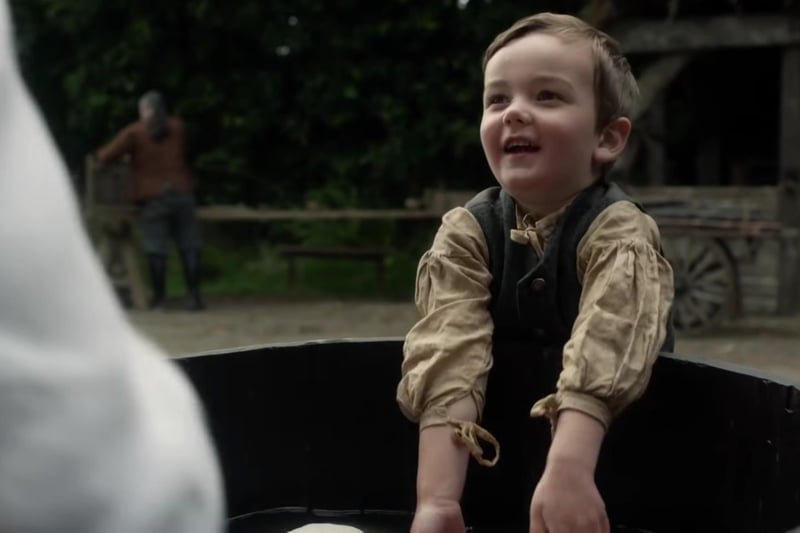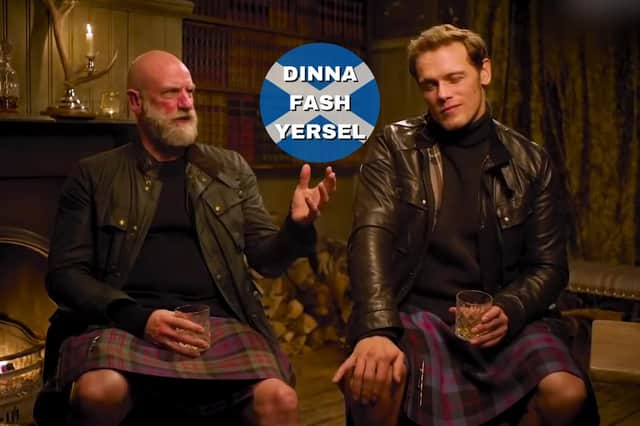The Scots Language and Scottish Gaelic are peppered all throughout the Outlander series and, if you’re a fan, perhaps you already speak these Scottish languages without realising it.
Despite Gaelic being at threat of extinction and Scots (the tongue of the famous Robert Burns) facing a similarly stark decline, they are still officially seen as native languages of Scotland.
We’ve previously covered everyday Gaelic phrases in Outlander and even romantic expressions for all the Jamie and Claire’s of the world, but today we’re turning our attention to examples of Scots in the show.
If Scottish words and sayings like “stramash”, “gomeral” or “peely wally” have you scratching your head then carry on reading for thirteen Scots expressions in Outlander used by Jamie Fraser and his ‘teuchter’ crew.

1. Bonnie
Campervan enthusiasts who have made their way through the country have surely seen ‘Bonnie Scotland’ stickers at some point. The term “bonnie” means “pretty or beautiful”. Robert Burns used it in his iconic poem ‘A Red, Red Rose’: “So fair art thou, my bonnie lass, So deep in luve am I; And I will luve thee still, my dear, Till a' the seas gang dry.” Photo: Submitted

2. Dinna Fash
As with most languages, Scots has various dialects and this expression comes from Doric which is a Scots dialect associated with Northeastern Scotland. The phrase means “don’t fuss” or broadly “don’t worry” and is most often said like “dinna fash yersel” which is to say “don’t worry yourself”. It’s the perfect expression to reassure a friend. Photo: Submitted

3. Bairn
You may remember this one from Jamie as he refers to his son Fergus and daughter Brianna. Simply put, the term “bairn” refers to a child. Another such word used in Outlander (which is also commonly used even in modern Scotland) is “wean” which also refers to a young child. Photo: YouTube Screenshot via Outlander

4. Ken
No, we’re not referring to Barbie’s famous plastic companion, in Scots “to ken” something is “to know” it. That means that you, the reader, now ken what the word means but for the things you don’t ken then a useful phrase to remember is “dinna ken”. This shows up in Outlander often and just means “don’t know”. Photo: Submitted


